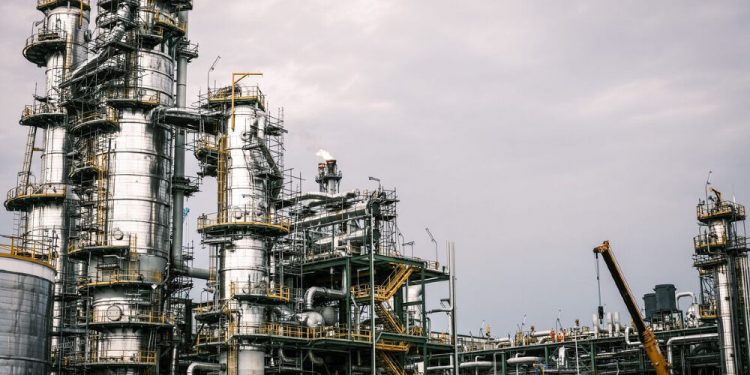The Federal Government of Nigeria has announced the introduction of naira-denominated crude oil sales to Dangote and other local refineries starting October 1, aiming to end the 20-year-old Domestic Crude Allocation (DCA) scheme. This significant shift is expected to enhance transparency in the domestic fuel supply chain.
For over two decades, Nigeria has allocated approximately 445,000 barrels of crude oil per day to its four government-owned refineries, utilizing these resources for domestic refining. With the new initiative, payments for this allocation will be made in naira, and the Petroleum Products Marketing Company will manage the distribution and sale of the resulting refined products.
The initiative aims to ensure energy security, stabilize refined petroleum product prices against fluctuations in exchange rates and global crude oil prices, and maintain sufficient supplies of refined products in Nigeria. However, the DCA scheme has faced challenges; due to chronic financial and operational issues within domestic refineries, a significant portion of the allocated crude has historically been diverted to complex oil-for-product swaps, known as the Direct Sale Direct Purchase (DSDP) program.
Bayo Onanuga, special adviser on information and strategy to the president, stated that the African Export-Import Bank (Afreximbank) and other local settlement banks would facilitate the trade between Dangote and the Nigerian National Petroleum Corporation (NNPC).
“To ensure stable pump prices for refined fuel and manage the dollar-naira exchange rate, the Federal Executive Council adopted a proposal by President Tinubu to sell crude to Dangote Refinery and other upcoming refineries in naira,” Onanuga shared via his X account. He confirmed that the 450,000 barrels designated for domestic consumption would be sold in naira, with the Dangote refinery serving as the pilot project.
Zacch Adedeji, executive chairman of the Federal Inland Revenue Service (FIRS), noted that the sale of refined products from the Dangote refinery would also be conducted in naira, significantly alleviating foreign exchange pressures on the economy.
Adedeji further explained that the new approach would reduce the foreign exchange expenditure on petrol to a maximum of $50 million per month, resulting in an annual savings of approximately $7.32 billion. He described the initiative as a major innovation in addressing Nigeria’s economic challenges, promising increased employment opportunities and enhanced control over a key sector of the economy.










